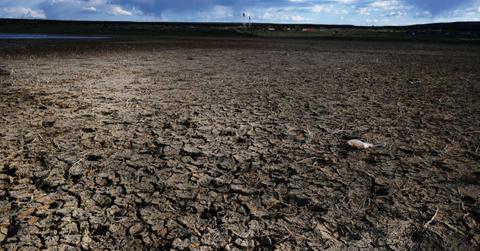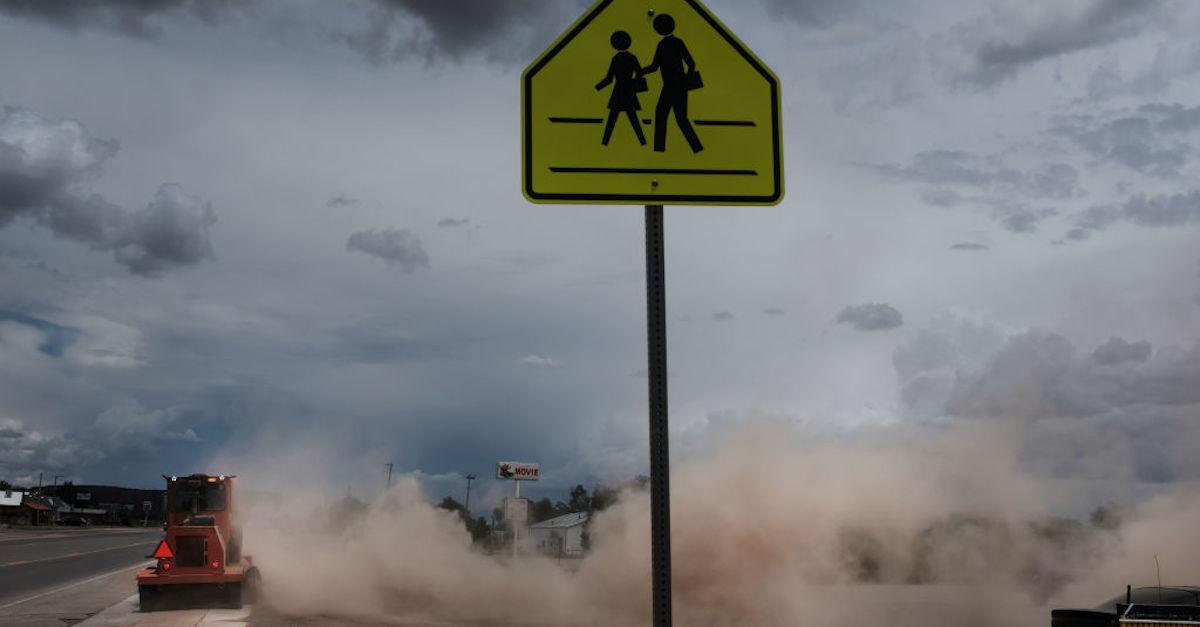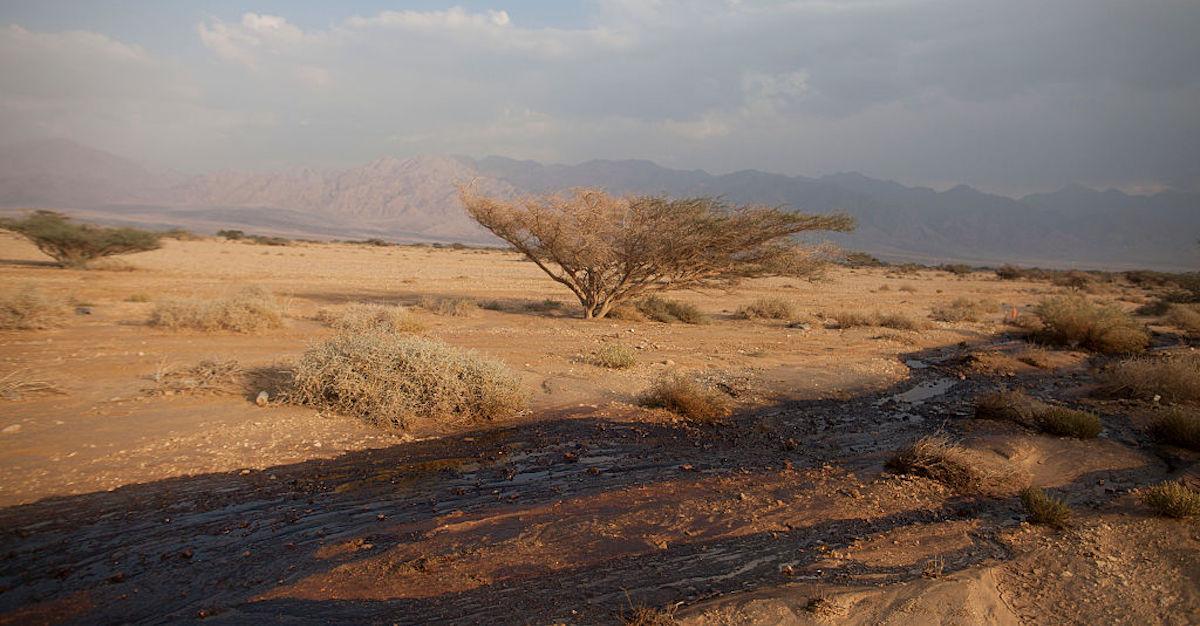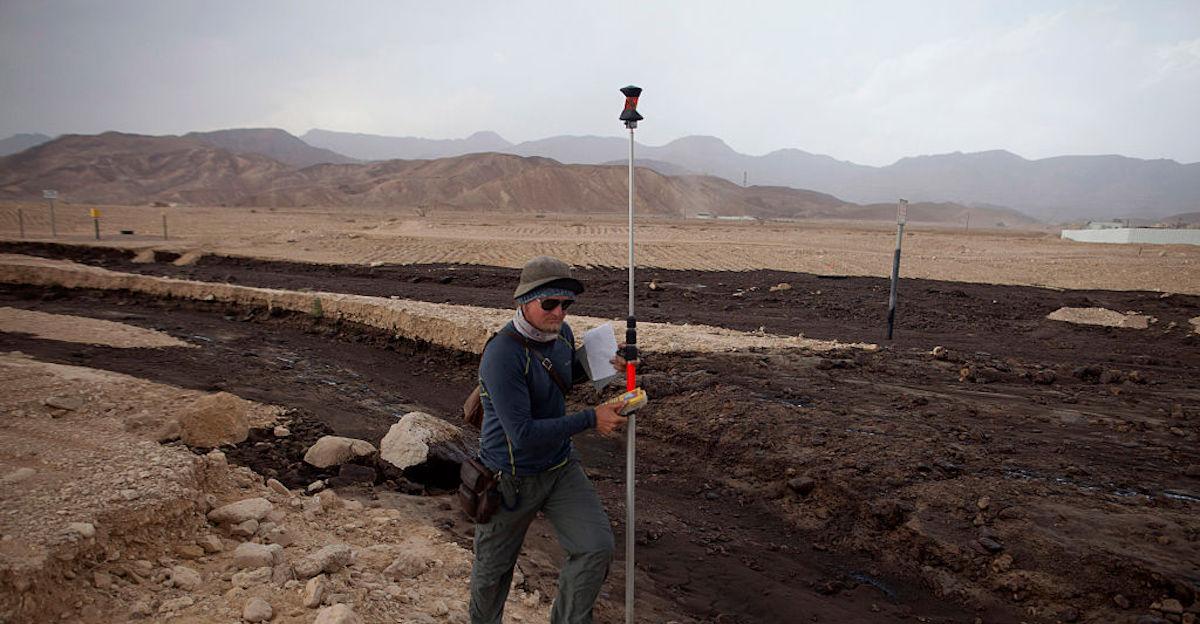Oil Companies Continue to Drill, Pollute, and Endanger Native Lands — But Why?
Updated April 8 2021, 5:03 p.m. ET

As an environmental activist, you're likely aware that pipelines affect surrounding communities, which oftentimes, includes marginalized neighborhoods and native lands. The Dakota Access pipeline, for example, runs through the Standing Rock Sioux Tribe Reservation, among other Indigenous sites across Illinois, Iowa, North Dakota, South Dakota, the Missouri River, and the Mississippi River. Likewise, the Keystone XL pipeline slithers through native lands in Canada and the U.S. Midwest.
Since pipelines can truly decimate surrounding ecosystems and communities alike, why do oil companies continue drilling on sometimes sacred and inhabited native lands? The reason is seriously heartbreaking — and some serious changes need to be implemented.

Companies drill on native land for money.
Both oil companies and the U.S. government are highly motivated by money that comes from crude oil — despite the devastating effects of fracking and drilling. Major corporations and the federal government solely have their sights set on generating revenue that comes from fossil fuels, so unfortunately, they are more than willing to endanger these Indigenous tribes, which are often located in otherwise desolate natural areas, according to the Sierra Club.
Although the Obama administration was relatively complacent in regards to protecting native lands from drilling, the former POTUS designated 1.35 million acres of Bears Ears National Monument as "protected land," safeguarding over 100,000 sites from drilling. Trump's administration, however, rolled back these protections, reducing the protection of Bear's Ears by over 85 percent and auctioning 250,000 more acres of land off for gas and oil extraction, which came with devastating results.

Similarly, in February 2019, an Enduring Resources pipeline which ran through New Mexico burst. It caused almost 59,000 gallons of oil to flow through Navajo Nation off-reservation trust land, according to The Guardian, and not only were waterways drastically affected, but it caused a massive explosion that took over an hour to extinguish.
Daniel Tso, chairman of the health, education and human services Committee of the Navajo Nation Council, attributes this type of lackadaisical attitude to mere racism and carelessness.
“Oh, it’s on Indian land. Don’t worry about it," he said sarcastically, according to The Guardian. “It happened on Indian land ... So it’s trivialized. It’s of no big concern.”

Sometimes, companies swindle Native American families by enticing them with bonuses.
Reportedly, a wave of fracking projects hit New Mexico around 2009. Land agents called nearby families to sign leases to drill on their land, without much explanation. Tso told The Guardian that locals were essentially treated like athletes who were being traded to other teams. They were effectively told, “sign here, you’ll get a signing bonus.”
However, families are often given way less money than is made, or what is deserved. Often, families receive less than what is expected,
“When you have more than 70 percent unemployment and you have more than 70 percent of the population living in abject poverty, you can’t fault them for signing,” Tso said.
The solution? Ending drilling projects altogether and shifting to renewable energy — it's the only option that will maintain communities and ecosystems alike.
"Navajo culture and tradition dictate respect for our relatives who have come before us," Navajo Nation President Jonathan Nez said, as per Reuters. "As Native people, we are connected to the land, and it is important to preserve the dwellings and the belongings of the ancient ones."